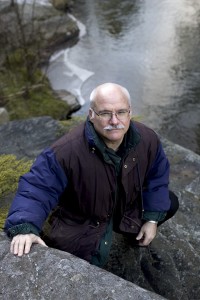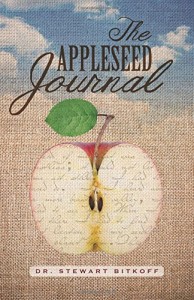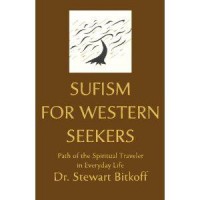In an age long ago, there lived a handsome Prince who was beloved for his joy, kindness and generosity of spirit. The Prince’s father, the King, recognized that his son was very special and did not want him embittered and tarnished by the world. So, the King built a high wall around the palace and kept all knowledge of the darkness and despair of the world away from his son. In the presence of the Prince, none were allowed to speak of sickness, war, poverty or the world beyond the Palace. In this way, the King kept his son sheltered from the ills and sadness beyond the Palace walls.
As the years passed, the Prince married and had a family of his own. While his life in the court and family activities kept him occupied and for the most part content, the Prince was beginning to feel a faint stirring within his breast that he could not identify and this caused him concern. When he spoke to his wife, the Princess about it, she told him, what she had been instructed to say by the King; it was a feeling that would pass and not to be concerned.
As this feeling of uneasiness did not leave, one day, he went to his father the King, to see what could be learned. The Prince questioned, “Father there is a restlessness inside my heart that is causing me concern. While my life in the Palace is full, I am beginning to wonder if I am missing something? I know there is another world outside the Palace; I have heard people at court whispering about it. I would like to see and learn of this world.”
The King replied, “yes my son, there is a world beyond the Palace, but it is nothing as beautiful or grand as our life here at Court; in the outside world, there are things like poverty, war and hunger. Also, there is an emotion called pain that is very unpleasant. That is why I have built this wall and, all these years, kept these things from you.”
And the Prince, because he had an inner sense of wisdom, replied,“thank you father for protecting and being honest with me; however, the outside world is something I will need to think more about.”
As the Prince left the court, the King who was very wise, assigned two Palace Guards to watch his son and make sure he did not go exploring into the outside world.
That evening, as everyone slept, the Prince changed into some old clothing that he purchased from one of the stable hands and climbed out a window in a quiet part of the Palace, where few people slept, carefully avoiding the guards. He made his way to the Palace wall and climbed over with rope and grappling hook; the stable hand had concealed earlier in the day.
And as the Prince climbed the wall, in short time, he found his way to the village that lay a distance over the hills. Walking through the village, as people prepared to bed for the evening, the Prince saw people, without homes, living on the streets that came-up to him, begging for food. And as he walked, he saw a man without legs that worked selling cooked meats beside another, missing one eye, who was cleaning potatoes to bring home to his family.
All the while, the Prince walked among the villagers, they did not recognize him. For the Prince was dressed like one of them and was no longer joyful; his gait was bent like one who struggled with a heavy load. And indeed this was true; the poverty, illness, and sadness about him had burdened the Prince and caused him to despair.
That night the Prince did not return to the Palace; he spent the hours walking across the countryside unable to reconcile the gaiety of Palace life and the seeming poverty and suffering of the nearby villagers. Why hadn’t the King, or any of his Advisors, done anything to help these unfortunates? The Prince knew that his father, the King, was a generous man; over the years, the King had refused the Prince nothing as he grew into manhood.
Yet the King surely knew about the situation? The village was so close to the Palace. Finally, the Prince reasoned, the King allowed this poverty and by contrast, the extravagance of Court life. This troubled the Prince further.
And as the Prince continued to walk, the sun was coming up as he approached the plain before the great forest. In an open grassy space, the Prince saw some poorly dressed men gathered in a circle, seated in lotus position. Coming up to them, he called out, “O men of the forest, may I join you and learn something of your way of life.”
And the oldest of the forest hermits, who introduced himself as Jedaya said, “you may join us if you are not faint of heart and firm in resolve. We live a lonely and poor life. Often we sleep beneath the stars with no roof over our head and no bread in our belly. What say you?”
And the Prince, who made up a name for himself, replied “greetings Jedaya; my name is Sadhru and I am firm of resolve. I wish to join you only if peace can be found in your way of life. What say you to this?”
“Sadhru,” replied Jedaya, “it is said that peace may be found in the hermit’s way of life. Do you wish to join us?”
For ten years, Sadhru joined the forest hermits and lived among them, studying their ways. In this period he learned many things. Sadhru learned to recognize the coming storm by the song the leaves sang in the wind. He learned which berries were poisonous and how to fashion a loincloth from among the reeds. He learned to quiet his heartbeat to a gentle stir. Yet, in this time he did not learn to rise above, or still, the pain in his heart caused by the suffering of the villagers and shame of the King’s indifference.
One morning as the forest hermits sat in their meditation circle, Sadhru informed Jedaya, it was time for him to leave. Sadhru indicated, he had learned many things, but had not learned to still the pain in his heart, and this pain was forcing him to find another way, a way to transcend pain and suffering. And Jedaya was sad to see Sadhru leave and looked upon Sadhru as a son.
And as Sadhru traveled for days, further into the forest, he came to rest beside a peaceful river. Here he slept and refreshed himself; and while he slept, he dreamt of a grass hut, beside this river. In this hut, he saw himself and another, older man; they both worked together, happily as ferrymen, taking people by raft across the river.
When Sadhru, awoke from his dream, he was cheerful for the first time in over ten years. This happiness filled him with energy and he quickly resolved to locate the ferryman and make this dream a reality. In his time with the forest hermits, Sadhru learned to read the signs of the forest, lake and stream. By intuition he could tell that the river was flowing faster up ahead which meant that it was growing wider, downstream. This was the direction that Sadhru followed.
By early morning, he saw the hut, the ferryman and people being transported across the river just like in his dream. As the ferryman docked and tied up his raft, Sadhru offered assistance and worked alongside with the ferryman for the rest of the day. At day’s end, as was the custom of this land, the ferryman invited Sadhru to rest and partake of tea and melon. And as the two men sat together and sipped tea, a friendship was instantly formed; and Veda, which was the ferryman’s name, asked Sadhru to join him with his work.
Sadhru agreed, “only if I can find peace, and transcend my pain and suffering working on the river.” Veda softly replied, “I have worked on this river for 30 years and have found peace and bathed in the still water of my soul. Here, in time, you will find what you are seeking.”
And as the years passed, Sadhru learned to hear the beautiful song of the river. It played a quiet, peaceful tune in the winter and in the spring rejoiced in its new life and wonder.
When people came to cross the river, they remarked how similar both the ferrymen appeared. They looked like brothers, and emanated a quiet, joyful, peace about them.
One sunny afternoon, Sadhru rested beneath the trees that lined the river. And as Sadhru sat and mediated, in lotus position, Sadhru began to hear a faint melody stir from deep within his breast. Slowly Sadhru recognized the song; it was the same joyful melody the river sang as it celebrated its new life and carried the melting snows.
And as Sadhru merged with his own inner song, he rejoiced in its peaceful beauty, and joined with the notes of the river. Like two lovers surrendering to each other, Sadhru and the river became one. In that serene moment that carried into eternity, Sadhru celebrated and journeyed with the river across the countryside; and as the river fed the land, Sadhru joined along with the fields and trees as they drank of the cool, peaceful water.
In that moment that stretched far back into the past and far into the future, Sadhru was one with all living things; finally, he was at peace and had transcended his own pain and suffering.
In the years that followed, many came to learn beside the ferrymen; in time, this way helped many transcend sorrow and cross the river of life. First, they had to leave their old ways behind and let the ferrymen guide them.
-SB








{ 0 comments… add one now }